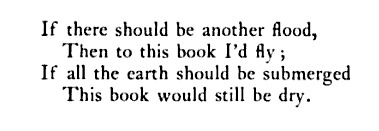
In 1910, Flint, Mich., landowner Neil Boyston provided a lot for the Flint Union School in return for “one clover blossom a year.”
In exchange for an acre of land in Philadelphia, the Schuylkill Fishing Company used to pay landowner William Warner an annual tribute of three perch on a pewter platter.
In 1772, a Manheim, Pa., congregation rented the site for its church from Henry William Stiegel in return for “one red rose, payable in June, when the same shall be lawfully demanded.”
When Henry VIII granted an estate to the Lord of Worksop Manor in 1542, he received it on the condition that he and his heirs should provide a right-hand glove for the king and support his arm on the day of his coronation.
“Once a year a Lord of the Manor of Essington was compelled to bring a goose to Hilton,” noted the New York Times in 1910. “He was called upon to drive the bird around the room. In the meantime a kettle of water was placed over a wood fire, and the unfortunate tenant was required to drive the goose around the room until the water was boiled and began sending steam out of the spout of the pot. It does not take a very great stretch of the imagination to conjure up the chaos that must have ensued on rent day at Hilton.”





